It comprises seven week-long sessions (sessions start on Monday lunchtime and finish on Friday lunchtime), each of which deals with a different aspect of football administration and management.
Delivered in English, the sessions are held over a period of 20 months in major European cities (Amsterdam, Barcelona or Madrid, London, Munich and Paris), all home to leading clubs and organisations in football. Exceptionally, the first session takes place at UEFA headquarters in Nyon, Switzerland, while the final session takes place in New York, where participants learn about the American model of sport. For those who do not already work in a sports organisation, a three-month work placement offering practical experience.
Successful participants are awarded an executive master’s degree by the University of Limoges.
The UEFA MIP is specifically designed for former professional football and futsal players as a next step in their career off the pitch.
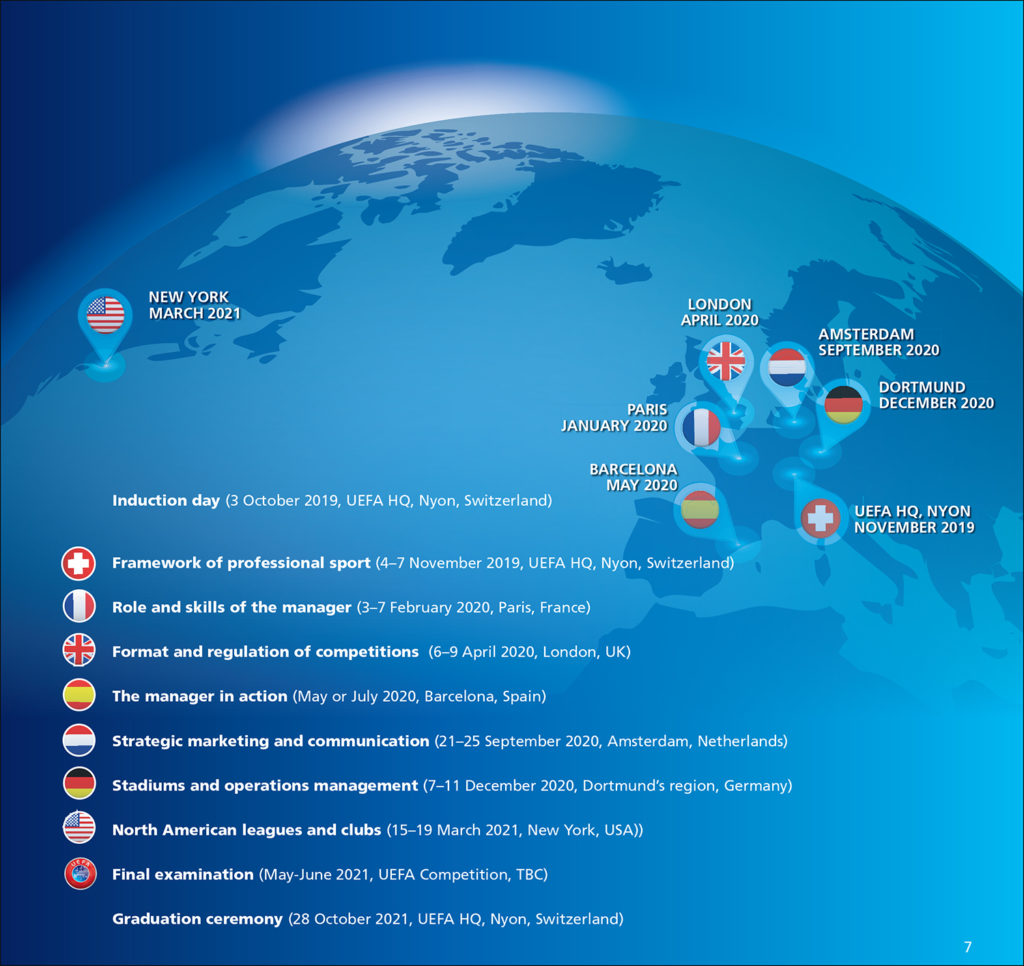
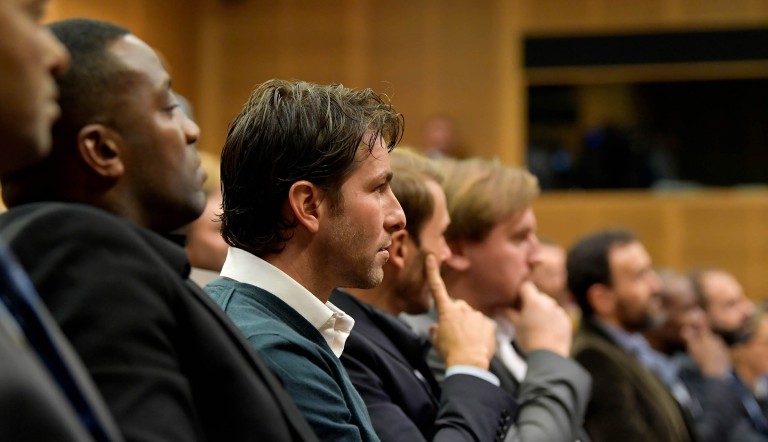
15–18 November 2021
UEFA HQ, Nyon, Switzerland
Professional sport as an industry, like any other, is subject to certain rules and has certain specificities. Whatever the organisation you work for, you must have a perfect understanding of the specificities of the sports industry. This, as well as the knowledge and legitimacy gained during your career as a player, will enable you to be a more effective manager. This session aims to help you identify which skills you possess that can be used as a top manager.
Main objectives :
• Present the general institutional, legal and economic framework of the European professional sports system and its major challenges.
• Present concrete examples of management careers for former international players.
• Highlight the key skills that managers require and that are gained by professional players during their sporting careers.
• Introduce features of team sports economics and present the economic development of professional sport in Europe.
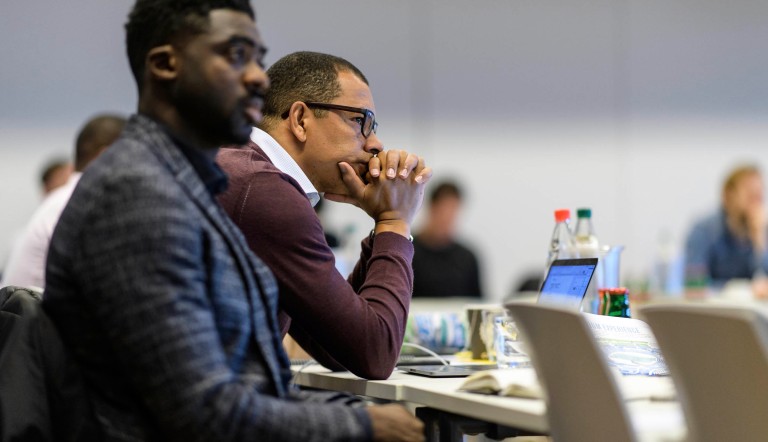
7–11 February 2022
Paris, France
Some of the skills you acquired in your career as an elite athlete are directly transferable to the role of a top manager; others need complementing. Your role as a manager is then to apply these skills to a clearly defined, coherent project plan that takes into account the history, culture and values of the organisation you work for.
During this session you will learn from the experiences of several managers from sporting and business backgrounds. With the help of various activities, you will also be invited to reflect on what kind of manager you would like to become.
Main objectives :
• Identify different management styles.
• Highlight the key skills of successful managers in sport and other industries.
• Highlight the importance of having a clear vision, a defined strategy and a managerial project.
• Introduce features of strategic management.
• Introduce features of project management and provide concrete and simple project management tools.
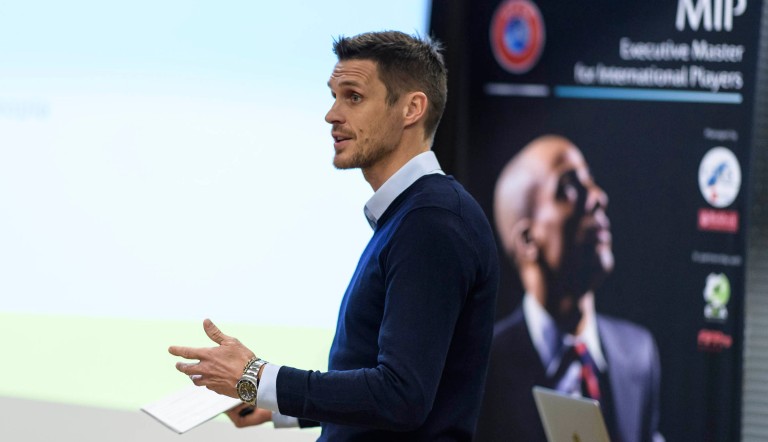
4–8 April 2022
Amsterdam, Netherlands
The sports system involves a very large number of stakeholders whose constraints can be hard to reconcile (sporting v business concerns, sporting v national and European legal frameworks, etc.). It is the combination of these different elements that makes sport a complex system that needs special rules, at the heart of which must remain the preservation of the spirit of sporting competition itself. This session addresses the challenges inherent in finding the best format for sports competitions.
Main objectives :
• Explain the key principles informing successful club and national competition design, using illustrative case studies.
• Illustrate the importance of effective regulation and governance systems in competitions’ success.
• Illustrate the governance and regulatory environment of the football player labour market.
• Explain the context of the recent development of women’s football and illustrate the critical success factors in developing elite women’s football leagues, using illustrative case studies.
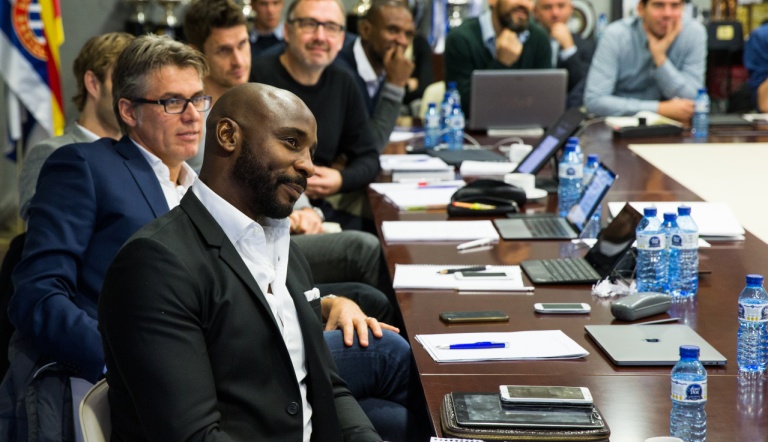
6–10 June 2022
Lisbon, Portugal
Now more than ever, managers are expected to demonstrate new leadership styles, different approaches to motivation, negotiation techniques and management skills. This session will also address communication, including corporate communication, crisis management and dealing with the media. The general objective of the session is to understand the importance of the staff within a sports organisation and the role of the manager as the leader of a professional group. You will be provided with a manager’s toolbox to run everyday projects efficiently and deal with unfortunate events successfully.
Main objectives :
• Work on negotiation, motivation, decision-making and communication skills.
• Explain how to create coherent projects and how to manage them.
• Illustrate the critical success factors in conducting efficient meetings in the context of sports organisations.
• Illustrate the critical success factors in efficient networking.
• Explain and illustrate how the world of communications has changed and how this has had an impact on football stakeholders, including players.
• Provide training on communication, involving real-life crisis management cases.petition
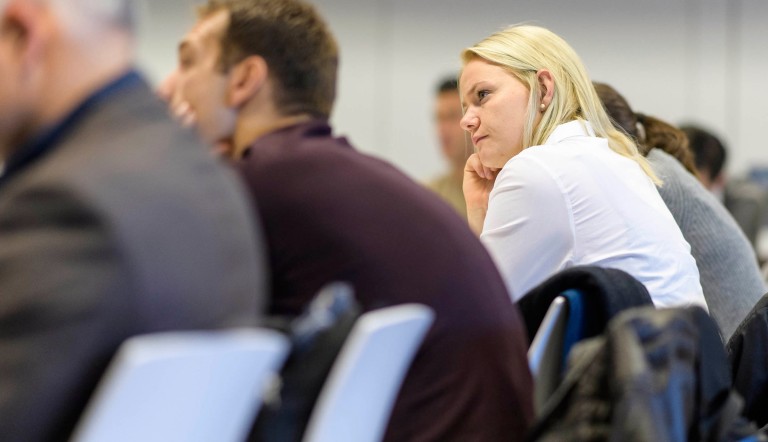
24–28 October 2022
Manchester and Liverpool, UK
Stadiums are a major concern for sports organisations (both clubs and national associations) that wish to manage their futures: they are an important asset, they generate revenue and they help to establish a special bond with the local community and fans. This session will give you an overall understanding of the issues relating to stadium management (ownership, the role of each stakeholder, various roles in running a stadium and different business models) and will also give you an insight into operations management notably through witnessing the inner workings of a UEFA club competition’s match.
Main objectives :
• Introduce stadium policies in different countries, economic issues and the role of stakeholders.
• Show the impact that the overall organisation of sport can have on stadiums through a national association’s development policy.
• Show how a stadium owned by public authorities or a national association is run.
• Demonstrate the role and importance of a stadium for the development of a club.
• Present stadiums as profit centres and provide examples of different business models.
• Analyse the operations roles of managers in stadiums.
• Understand and experience the operational management of a high-profile club competition.
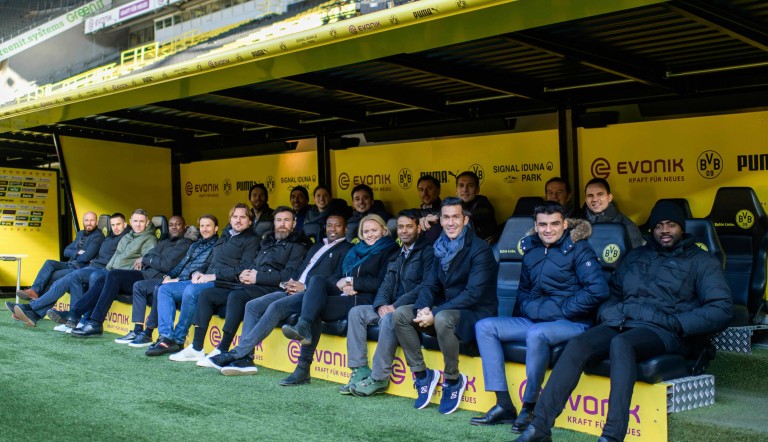
6–10 February 2023
London, UK
The modern demands on sports organisations are such that the organisations must develop effective financial models based on solid strategic marketing programmes. Strategic marketing enables organisations to develop and capitalise on their assets, i.e. the sport, the brand, the matches and the various associated rights.
During this session, you will learn from the experiences of several high-profile speakers with sporting and marketing backgrounds. Through various activities, you will also be invited to reflect on various elements of strategic marketing and to put together a marketing plan for a football match.
Main objectives :
• Demonstrate the various elements of strategic marketing, and how research can help in the decision-making and monitoring process.
• Explain the importance of branding in football and get you to think like brands.
• Highlight the importance of data and introduce the various elements of fan engagement.
• Introduce the concept of sponsorship from both a rights holder’s perspective and a sponsor’s perspective.
• Explain and illustrate how the world of broadcasting and media rights is evolving.
• Illustrate how marketing can help increase participation at grassroots level and measurement process.
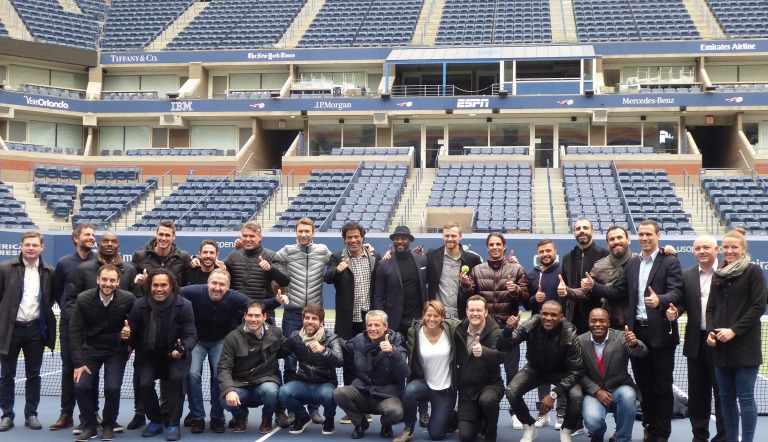
27–31 March 2023
New York, USA
The organisation of professional sport in North America and Europe is completely different. By learning about another sports model with its own history and culture, you will carry out an in-depth analysis of the specificities of the major North American professional sport leagues and clubs. This session will enable you to broaden your own managerial horizons and acquire new tools for success.
Main objectives :
• Complement the European perspective with a very different but prosperous model.
• Explain the economic and regulatory structure used to achieve competitive balance and financial stability.
• Explain the regulation of players’ salaries and the use of a franchise system with a geographic monopoly.
• Introduce Major League Soccer and illustrate the strategy of a football club within this league.
• Present collective bargaining agreements as a key element of regulation and exemptions from competition law.
• Highlight the collective sale of media rights as a redistributive tool and the collective sale and redistribution of league merchandising revenues.


